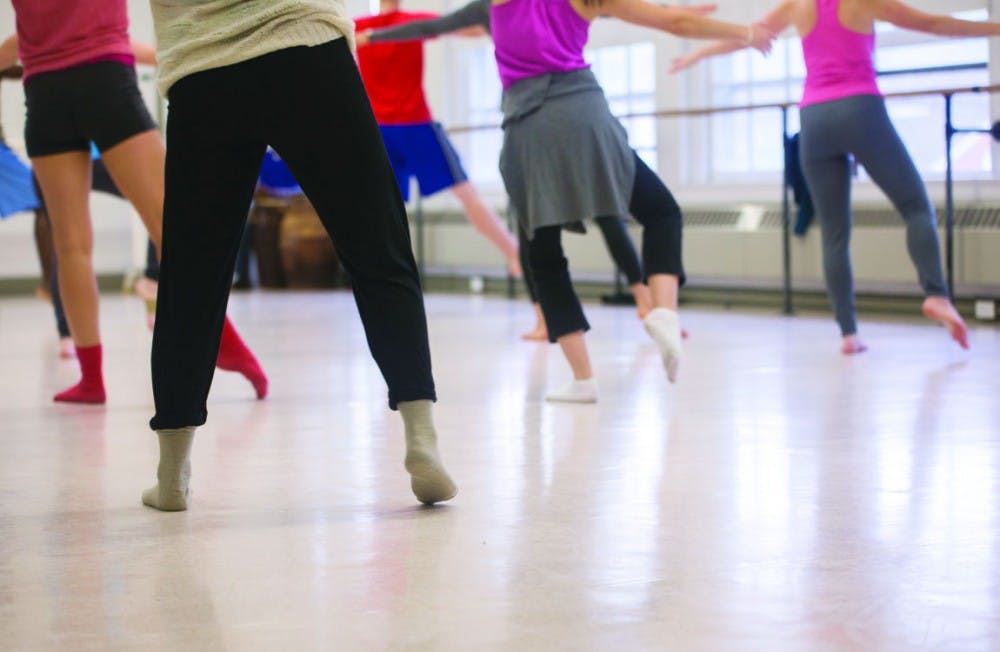Professionals in the dance field give their thoughts on the reality show ‘Dance Moms.’
For some, the TV show Dance Moms is a guilty pleasure, but for others pursuing dance as a career, it’s a disgrace.
“I think there is a reality (to the show), but I think that it’s not a healthy environment,” said Travis Gatling, associate director of the Division of Dance. “I think ultimately it may hurt the dance field because of that pressure. When the dance student gets older they may say, ‘I don’t want to do this. This is not worth it.’”
Dance Moms first aired on Lifetime in July 2011 and it depicts dancers from the Abby Lee Dance Company in practice and in competition. The show is known for the extreme behavior of the instructor, Abby Lee Miller, and the students’ mothers.
The fourth season, which premiered in January, averages about 1.5 million viewers per week, according to Zap2It’s “TV By the Numbers.” The show is also now available on Netflix.
Dance students such as Bethany Logan think the show is a poor representation of something they care deeply about. Logan stopped competing in dance as a sport in the eighth grade when she decided to get more serious about dance and joined a pre-professional dance company, which focuses more on teaching technique.
{{tncms-asset app="editorial" id="f3d87710-e6e3-11e4-ae18-97d897ba6cf1"}}
“Abby Lee is an extremely poor example of a dance educator,” said Logan, a senior studying dance. “I'm surprised there has not been more backlash from professional dancers in the field toward her abusive, both emotionally and physically, teaching style. It is very clear that Abby Lee has never pursued any sort of education to further her knowledge in the field of dance, or what it means to be an educator.”
Logan said she has seen mothers get frustrated with one another at competitions, but in the past 13 years of her dance career, she said she has never seen it to the extreme that is depicted on the show.
In addition to the emotional harm Miller seems to inflict on her students, Gatling added that the physical demands of competitive dance itself can sometimes be a problem. The dance injuries could be permanent or recurring, which would lead to a hindrance of the person’s dance career.
Because the dancers in the show are children, it is different on a collegiate level when the students are adults.
“The (trope of the) ‘dance mom’ thing is also about hovering over the child, making sure they're getting everything, but in the college experience, the child is not a child,” said Nathan Andary, a dance lecturer. “The child is (an) adult and learning in adult ways and participating in adult ways, and part of that is discussing specifically with that adult in a respectful (and) meaningful way that is healthy.”
The Division of Dance has not seen any behavior from parents as it is shown on the show, Gatling said, but sometimes parents express concern about their child’s scholarships or academics.
{{tncms-asset app="editorial" id="5291f180-e47f-11e4-b9a8-974b00730179"}}
“I think because we are in the business of dance as art and not dance as sport or competition ... it’s a more nurturing environment,” Gatling said. “So we really don’t get that same chaos and conflict and dance that’s created in the competition studio. I’ve not had that kind of experience in academia.”
Both Andary and Gatling said they think the “dance mom environment” is extremely unhealthy for the student.
“(Students are) pushed to the point of breaking, literally, sometimes,” Gatling said.
@annchristine38
ag836912@ohio.edu






